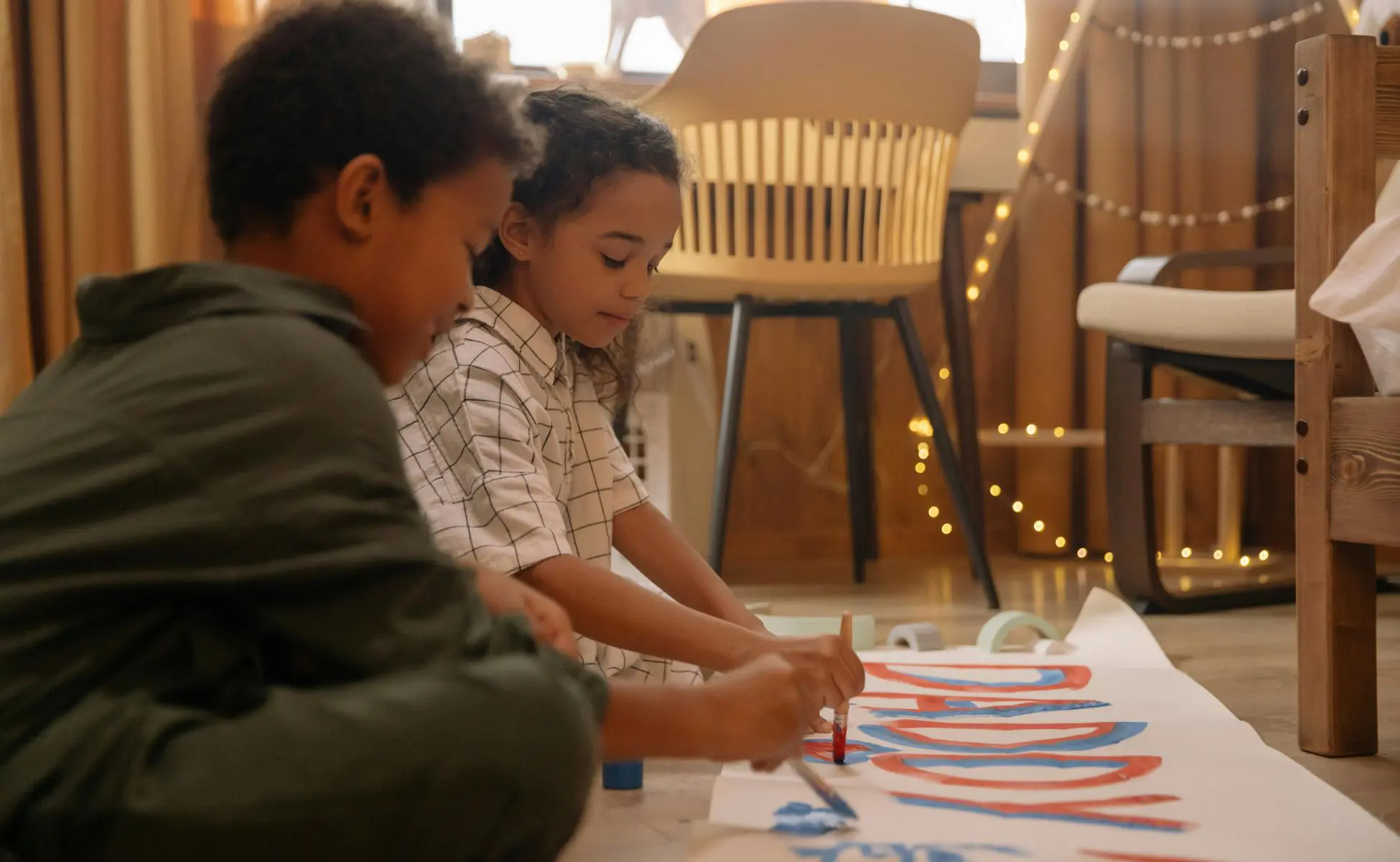Helping a child remember someone who has died

When someone important dies, memories become even more important to children and young people as a way of continuing the bond between them and the person who has died. Finding ways to help grieving children and young people to remember someone as well as ways of handling difficult memories can make a huge difference to how children grieve.
Children and young people who were old enough to have memories of the person who died can often worry that they will forget them – their voice, their smile, their smell. Helping them maintain those memories can help them with their grief.
Other children may have been too young when the person died to have many memories. This can make them feel distanced from the person who should feel so close. For them, telling stories and sharing your memories of that person can help them as they grow up. You can read more about supporting children who have little to no memories of their person here.
Sometimes, children will have had a challenging or very distant relationship with the person who died. Talking about positive memories, while also acknowledging difficult ones, can help a child gain perspective on the person and find their own ways to grieve.

Ways to remember someone
For those who were old enough to have memories of the person who died, it can be important to refresh them. This could be through activities such as sharing photographs of past events or creating a collection of special things connected with person. Refreshing memories is a little like re-saving a computer file: the memory is kept vivid and strong. Here are some ideas:
- Putting together a memory box. A memory box is a place to keep all kinds of things that remind children and young people of the person who has died. This can include jewellery or a watch, cards or items of clothing like a tie or scarf. You could include tickets from places visited together (a film, a museum, a football match), copies of their favourite music, perfume or aftershave associated with the person who has died. Click here to download our step-by-step guide to creating a memory box.
- Creating a jar of memories. This can be a big jar in which people slip post-it notes with memories of the person who died whenever they like. Anyone who wants to remember can pull one out at random.
- Planting bulbs for spring. Children can write memories on little pieces of paper that can be placed in the soil and spring bulbs planted. Their flowering recalls the memories.
Helping a child who has no memories of the person who has died
Some children may have been too young when the person died to have many memories. For them, stories are a way to remember someone who has died. Looking back on our own childhoods, it can be hard to know whether something is a memory or a story. Being told stories is a way of creating and maintaining the precious link between the child and their important person. Here are some ideas:
- Creating a ‘quiz’ about the person. Create a list of questions to give to the child and they have to find out the answers from family members and friends. Questions could be: What was the naughtiest thing they did at school? What was their favourite band when they were 17? Did they have their own room when they grew up? What was it like? Did they ever play in a band or a sports team? Download our free Life Quiz activity sheet to get started.
- Creating a box of stories. Friends and family members write the starting lines of stories on postcards, and these are stored in a box for children to ‘claim’ when they are older. This is easier for people than writing out long reminiscences and it’s even better for children to hear a story being told. Starts for stories could be along the lines of: The time we got stock on the school roof… The time we went to the gig on the wrong day… The time they told me that they were going to have a baby…
- Drawing up a timeline. Plotting events in the person’s life along a ‘river’ of memories can help a child gain a sense of the person. Putting together some dates (for example, the person’s birthday, the year they went to school and left school, wedding days, the child’s own birthday etc) can give a child a precious sense of how this person’s life was interwoven with their own.
Whether the child or young person has memories of their person or not, you could suggest holding your own memorial day. It is never too late to hold a memorial or other ceremony for an important person. You could consider linking this to an important date – for example the date of their death, or of the funeral or of their birthday. Children and young people who did not attend the funeral may appreciate some of the following ideas; they can also be used for marking the anniversary of the person’s death:
- Visit the grave (if there is one – or other special place, for example where the ashes were scattered).
- Visit a place with special memories (for example, the place where you had your best holiday ever).
- Create a special place of their own choosing (for example, in the garden of a new house).
- Visit a place that you went to regularly (for example, the park or the swimming pool) – an everyday rather than a once-in-a-lifetime place.
Some of these ideas may make the occasion special:
- Hold a small ceremony with specially chosen music, poems and tributes.
- Bring a picnic of the dead person’s favourite food to share.
- Prepare something to leave in the ‘special place’ – flowers, a laminated poem, a toy.
- Write messages, for example you could say: ‘If you came back for five minutes, I would …’ or ‘I remember when …’ or ‘My wish for the future is …’
- Light a candle and share special memories with each other.
- Start a collection of memories from family and friends of the person who has died. (‘I remember the day Jim got stuck on the school roof after climbing up to get his ball.’)
- You could listen to a favourite album or track or watch their favourite film.
- Or you could wear their favourite colour and have their favourite takeaway.
Where to get support
If you need advice on supporting a child on anniversaries, birthdays and special days, we’re here to help. Our team of bereavement specialists are available to speak with right away. No appointments or waiting lists, just real-life grief support. Call us on 08088 020 021 (open 8am-8pm, weekdays), email ask@winstonswish.org, use our online chat (open 8am-8pm, weekdays) or text or WhatsApp us on 07418 341 800 (open 8am-8pm, weekdays). You must be 13 or older to receive support via WhatsApp.
For urgent support in a crisis, please call 999.

Other resources you may find helpful

Activities for bereaved children
Download our activities to help grieving children and young people to explore and express their feelings and emotions and to help them maintain memories of the person who has died.

Information and advice
Access the latest information, advice and resources from our Bereavement Support Team, featuring content on support, remembrance and guidance for supporting bereaved children and young people.
Connect with us
Sign up to our newsletter and follow us on social media for all our latest news and advice on supporting grieving children and young people.

